#Nigeria and #Kenya are emerging leaders of #Africa’s electric mobility drive, as local firms begin assembling electric vans and taxis from Chinese-made kits

Grace Mugabe ‘fears being arrested’ if she returns to SA to support her son
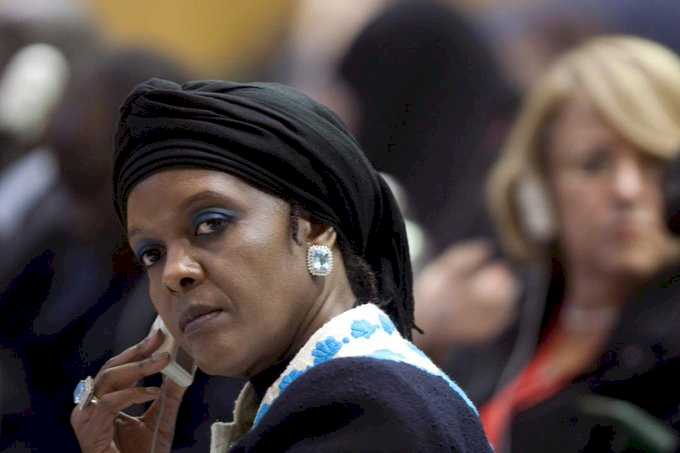
View 104 times
Access to major social media platforms has been disrupted in Gabon after the country’s media regulator ordered a suspension “until further notice”, a move that comes against the backdrop of mounting strikes and public discontent.
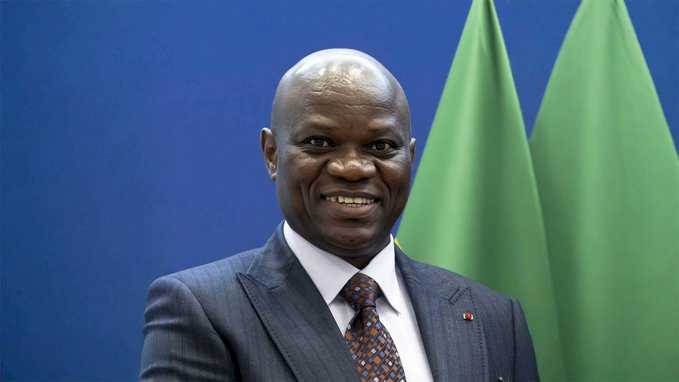
View 112 times
‘At peace to have my son buried in my country’: Father of Tumbler Ridge victim prepares to bury son in Zambia.
Now, the father of three, is preparing to bury this son – Abel Mwansa Jr., who was one of the victims of Tuesday’s massacre.
“I want my son to be remembered as a brave one,” Mwansa Sr. told CTV News in an interview at his home.
“I wake up and walk to the living room and kitchen. I’m thinking he’s still sleeping.”
Knowing that his 12-year-old son will never wake up is a reality he is trying to come to terms with.
Mwansa Sr. says his unwavering faith – even as it’s being tested – is helping him do that.
“The owner of that life is God,” he says, admitting that he has periods when he’s “breaking down and cry(ing) inside” because of the connection that he had with his son.
Mwansa Sr. describes his son as being the perfect big brother, never hesitating to take care of the eight-month-old baby in the family or his sister.
“He was always protective. He was always trying to make sure that people around him are safe. That’s the kind of boy he was,” he says.
Mwansa Jr. had dreams of being a scientist, engineer, or soccer player, Mwansa Sr. said, as he held up a collection of soccer medals. He kept a collection of his son’s belongings nearby: a pair of ice skates, a laptop, pottery and a replica truck made from wood, with a hitch he decided his father needed.
“He made this to inspire me, to buy the towing hitch,” Mwansa Sr. said.
Etched in his mind is his son’s smile.
“He can give you the best smile that you’ve ever seen. He had such a beautiful smile,” Mwansa Sr. said.
“A smile is the perfect medicine that all of us human beings need. I tried (to make) my son be deliberate about smiling.”
Now, three years after they came to #Canada from #Zambia, he never imagined his son’s life would end this way.

View 144 times
‘Money bouquets’ rival traditional flowers as coveted tokens of love for Valentine’s Day in #Zimbabwe.
HARARE, Zimbabwe — Liquidity as affection and trash as a symbol of enduring love. From bouquets fashioned from dollar bills to heart-shaped gifts forged from recycled scrap metal, romance in Zimbabwe is taking strikingly inventive forms, reflecting life in an economy where cash reigns supreme and sustainability gains new social value.
You can’t buy love, the saying goes. But from florists in traditional markets to social media sellers angling for attention on TikTok, dollar bills rolled and pinned together to resemble a floral bouquet are increasingly rivaling fresh flowers as Valentine Day’s most coveted tokens of appreciation in the southern African country.
“Please God, make my lover see this,” commented one TikTok user under a video advertising glittering cash-and-flower arrangements. “May this bouquet locate me in Jesus name, amen,” wrote another.
Cash as courtship
At a decades-old flower market in the capital, Harare, Tongai Mufandaedza, a florist, patiently assembled one such “money bouquet.” Using adhesive and bamboo sticks, he folded crisp $50 notes into decorative cone shapes, weaving them with stems of white roses.
As Valentine’s Day approaches, he expects business to surge.
“The market has improved because of the money bouquets,” said Mufandaedza, who has worked at the country’s biggest flower market for three decades.
“On Valentine’s Day, we are going to have more, more, more customers, because this is something which is trending. Everyone wants to impress,” he said, then patched the arrangement in bright red wrapping and ribbons.
Among those browsing the market was Kimberleigh Kawadza. Her preference was clear.
“The person who came up with the trend, I just need to give them a hands up. They did a good job,” said the 23-year-old. “It’s a way of appreciating my partner, it’s a 100 for me, it’s a 100.”
Practical romance
While Generation Z is driving the craze, Mufandaedza said demand is spreading across generations. Some parents, he added, are even buying money bouquets for their daughters “so that they don’t fall into peer pressure and get tempted to go for sugar daddies who can lure them with such gifts.”
Prices vary widely. Smaller bouquets may contain as little as $10, while larger arrangements can run into the thousands. In some cases, they are even cheaper than traditional floral gifts.
A bouquet of dollar notes with a value of US$10 costs $25, while a bouquet of 10 good-grade red roses costs between $35 and $40, he said. Many ask “where is the money?” if Mufandaedza delivers a bouquet of flowers without a cash design, he said.
Unlike traditional floral gifts, the appeal of money bouquets is as practical as it is romantic for Zimbabwe’s economic realities, where liquidity often carries more immediate value than luxury.
“People still love flowers, but when they see the notes on top, the love feels hotter and the gesture even more meaningful. Survival matters more in these difficult times and money plays a bigger role,” he said.
The U.S. dollar has dominated transactions since hyperinflation forced authorities to abandon the local currency in 2009. Although Zimbabwe has since reintroduced its own currency, the dollar remains legal and dominant.
With crisp notes scarce, worn and tattered U.S. bills, sometimes jokingly referred to as “war veterans,” are hardly suitable for decorative bouquets, spawning spin-off businesses of enterprising traders who supply clean replacement notes at a commission.
Zimbabwe isn’t alone in flirting with the fusion of cash and courtship. Money bouquets have also surged in popularity elsewhere in Africa, including Kenya, one of the world’s largest flower exporters.
Before Valentine’s Day, Kenya’s central bank warned of stiff penalties of up to seven years in prison for folding, stapling or gluing banknotes into bouquets, arguing that damaged currency disrupts cash-handling systems and violates laws against defacing money. The directive sparked lively debate online, with critics accusing regulators of overreach.
Love from scrap
Back in Zimbabwe, no such restrictions exist. But for some, love is finding expression not just through cash, but through trash recycled into keepsakes.
At an upscale shopping center in Harare, aluminium heart-shaped key rings, necklaces, platters and wine holders crafted from reclaimed scrap were lined up next to chocolates and gift boxes in Simpli Simbi, a decor and gift shop. “Simbi” means metal in the local Shona language.
“We are taking something that was unloved before, polishing it up and making it beautiful again towards a gift to someone that they can treasure forever,” said Stephanie Charlton, founder of the shop.
Charlton said that her customer base, once dominated by tourists and diaspora Zimbabweans, is increasingly local because of rising environmental awareness.
In an industrial area nearby, her foundry was stacked with discarded car radiators, rims and scrap metal collected from roadsides and landfills, before being melted in an open furnace and transformed into handmade gifts.
“Women love chocolates and flowers, but they are here today, gone tomorrow,” said Charlton, a former horticulture exporter who now employs 20 people.
“This is something that we have collected that would be filling up a landfill. But we have made it into something beautiful that you can give to (your valentine), show them that you treasure them. There is a meaning behind it, there is a story to be told with each piece.”
___
Farai Mutsaka, The Associated Press
Associated Press writer Evelyne Musambi contributed to this report from Nairobi, Kenya.
The Associated Press receives financial support for global health and development coverage in Africa from the Gates Foundation. The AP is solely responsible for all content. Find AP’s standards for working with #philanthropies, a list of supporters and funded coverage areas at AP.org.
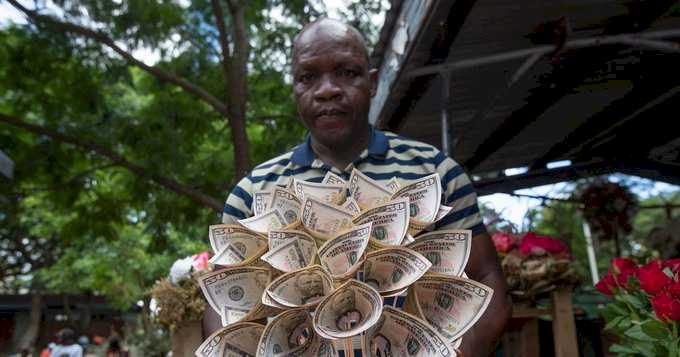
View 150 times
Seif al-Islam Gadhafi, son of Libya’s late dictator, killed in north Africa country, officials say.
CAIRO — Seif al-Islam Gadhafi, the son and one-time heir apparent of Libya’s late dictator Moammar Gadhafi, was killed in the northern African country, Libyan officials said Tuesday.
The 53-year-old was killed in the town Zintan, 136 kilometres (85 miles) southwest of the capital, Tripoli, according to two Libyan security officials in western Libya. The officials spoke on condition of anonymity because they were not authorized to brief the media.
Khaled al-Zaidi, a lawyer for Seif al-Islam, confirmed his death on Facebook, without providing details.
Abdullah Othman Abdurrahim, who represented Gadhafi in the U.N.-brokered political dialogue which aimed to resolve Libya’s long-running conflict, also announced his death on Facebook.
Abdurrahim, who leads his political team, didn’t provide further details, but Libyan news outlet Fawasel Media cited him as saying that armed men killed Seif al-Islam in his home. The outlet reported that prosecutors were investigating the killing.
Seif al-Islam’s political team later released a statement, saying that “four masked men” stormed his house and killed him in a “cowardly and treacherous assassination.” The statement said that he clashed with the assailants, who closed the CCTV cameras at the house “in a desperate attempt to conceal traces of their heinous crimes.”
Born in June 1972 in Tripoli, Seif al-Islam was the second-born son of the longtime dictator. He studied for a Ph.D. at the London School of Economics and was seen as the reformist face of the Gadhafi regime.
Moammar Gadhafi was toppled in a NATO-backed popular uprising in 2011 after more than 40 years in power. He was killed in October 2011 amid the ensuing fighting that would turn into a civil war. The country has since plunged into chaos and divided between rival armed groups and militias.
Seif al-Islam was captured by fighters in Zintan late in 2011 while attempting to flee to neighboring Niger. The fighters released him in June 2017 after one of Libya’s rival governments granted him amnesty. He had since lived in Zintan.
A Libyan court convicted him of inciting violence and murdering protesters and sentenced him to death in absentia in 2015. He was also wanted by the International Criminal Court on charges of crimes against humanity related to the 2011 uprising.
In November 2021, Seif al-Islam announced his candidacy in the country’s presidential election in a controversial move that was met with outcry from anti-Gadhafi political forces in western and eastern Libya.
The country’s High National Elections Committee disqualified him, but the election wasn’t held over disputes between rival administrations and armed groups that have ruled Libya since the bloody ouster of Moammar Gadhafi.
Samy Magdy, The Associated Press
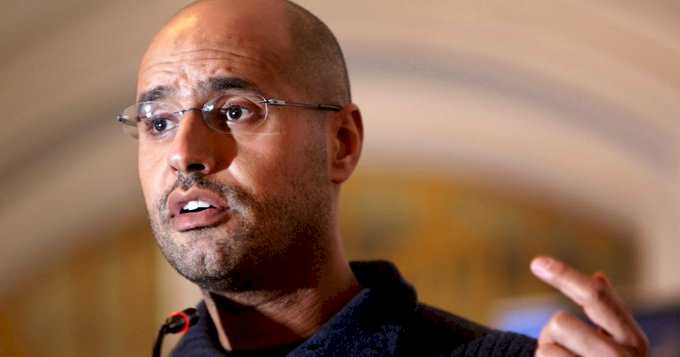
View 193 times
Congress talks Rwanda sanctions as VP Vance seizes Congo file Kigali faces mounting pressure in Washington as Trump’s flagship peace deal for eastern Congo falters, prompting bipartisan calls for sanctions and deeper scrutiny of Rwanda’s role in the conflict.
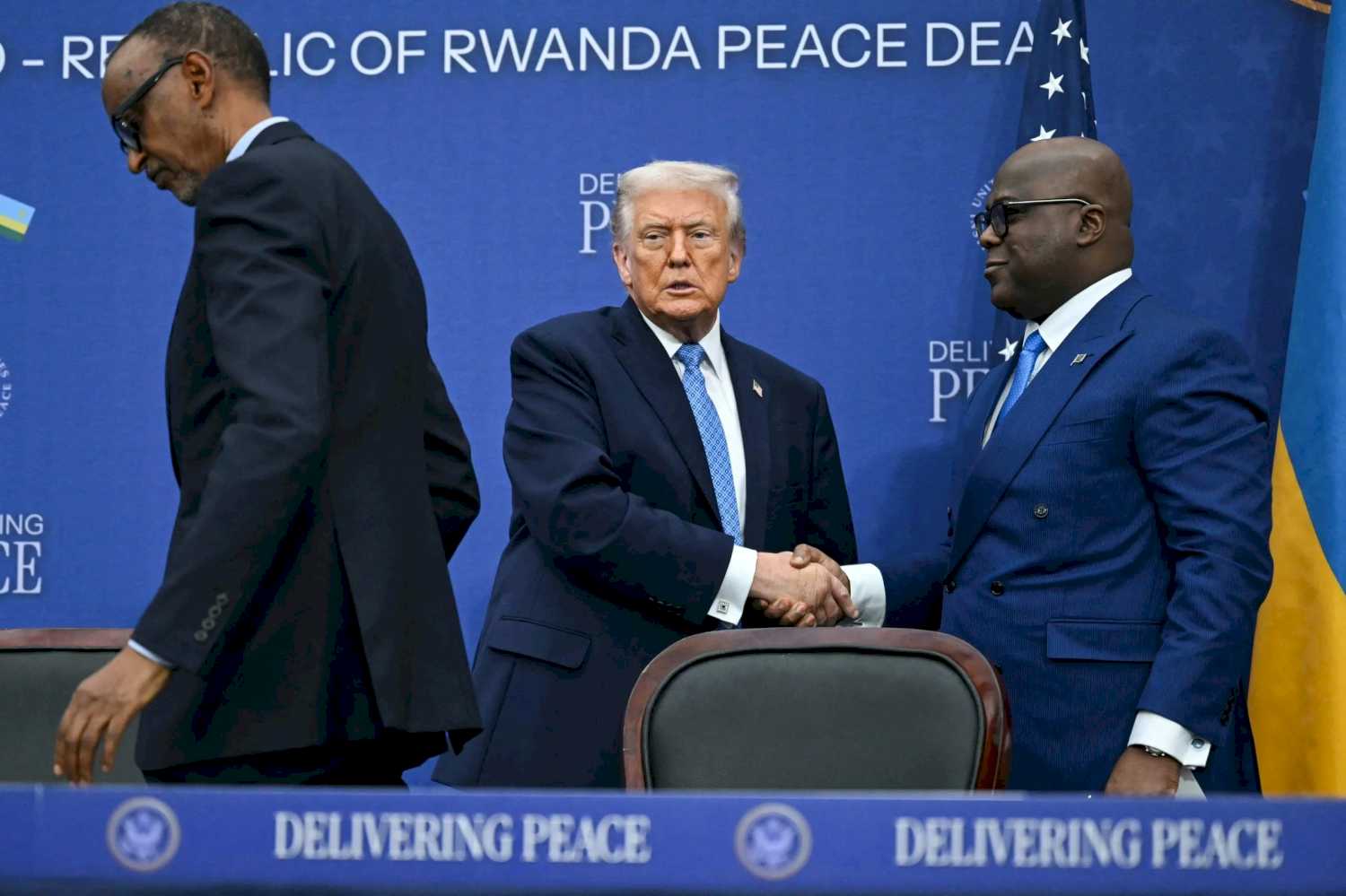
View 218 times
Africa news on Umojja.com